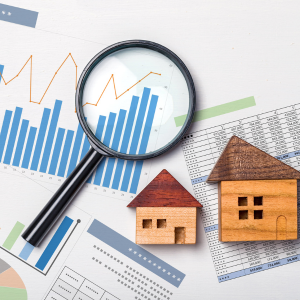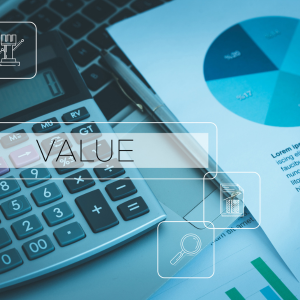
Factors Affecting Land Value in Texas

How Does Location Influence Land Prices?
In Texas, the location of a piece of land greatly affects its value. Land value is often higher in cities than in rural areas. This is because real estate in cities is popular due to their proximity to jobs, services, and fun activities. For example, Texas urban vs. rural land value trends show that places near big cities like Austin or Dallas-Fort Worth usually cost more. Knowing these trends can help buyers decide where to invest.
What Role Do Land Improvements Play in Value Assessment?
Land improvements can increase property value. Adding utilities, roads, or other infrastructure can make land more appealing to buyers. In Texas, the costs of these land improvements can differ, but they usually add a lot of value. For instance, electricity and water access land is likely worth more than empty land. These improvements make the land helpful for homes or businesses, boosting its value.
How Do Zoning Regulations Impact Land Value in Texas?
Zoning rules are essential for land value because they say how land can be used. In Texas, local zoning laws may limit what you can do with the land, affecting building or farming. Understanding Texas land zoning regulations is key for buyers and investors. These rules can restrict options and keep land value by ensuring development is organized. Knowing these limits helps in judging the true potential of a property.
Researching Comparable Land Sales

How to Find Recent Sales Data for Similar Properties
Finding recent sales data for similar properties is vital when looking into land value. You can get this information by checking open data sources and auction results. In Texas, various online platforms offer access to historical land transactions. Using these tools helps compare past sales, offering insights into market trends and price ideas. Accurate data helps evaluate potential purchases and understand market dynamics.
Why is Comparing Land Sales Important for Valuation?
Comparing land sales is a key part of the appraisal process in real estate. A comparative market analysis in Texas helps determine what land is worth. Buyers and sellers learn about market conditions and fair prices by looking at similar plots’ sales. Understanding these comparisons avoids overpaying for property and ensures a realistic valuation. It’s an essential step for anyone wanting to invest wisely in Texas land.
Best Online Tools for Researching Land Sales in Texas
Several online tools help research land sales in Texas. Platforms like AcreValue and different GIS software give valuable insights into real estate market analysis. These tools work as property evaluators, helping users estimate land values correctly. People can check land sales thoroughly using these resources, helping them make smart decisions for personal and investment reasons.
Understanding the Economic Impact on Land Value

Land value changes due to different economic factors. In Texas, knowing these trends helps both buyers and sellers.
How Do Economic Trends Affect Land Prices?
Economic trends can change the cost of land. Things like jobs, population, and inflation affect the real estate market. For example, if more people move to Texas, the demand for land increases, making prices rise. Watching these trends helps you decide when to buy or sell land in Texas.
What Are Capitalization Rates, and Why Do They Matter?
Capitalization or “cap rates” help determine how much you can earn from a property. You find this by dividing the net income by the property’s current value. In Texas, knowing cap rates lets investors see how much profit they might make. A higher cap rate means a higher possible return, making it key in real estate market checks.
How Do Interest Rates Influence Land Value?
Interest rates change how much it costs to borrow money for land. Low rates make loans cheaper, so more people can buy land. This higher demand can increase land values. However, when Texas land mortgage rates are high, buying power might be lower, reducing land prices.
Land Valuation Methods Explained

Knowing the land value is important for everyone involved in buying or selling. Each method shows a property’s worth differently.
Differences Between Market Value and Assessed Value
Market value is the price someone is willing to pay for a property. Tax authorities set the assessed value for taxes. Both are important, but the fair market value of Texas land often gives a clearer view for deals.
Understanding the Cost Approach in Land Appraisal
The cost approach examines value by estimating replacement costs and subtracting depreciation. In Texas, this helps when evaluating properties with new or unique features. Knowing Texas land improvement costs helps us understand how this approach works.
How Does the Income Approach Work for Land Valuation?
The income approach finds land value based on its income potential. It involves guessing future income from Texas land and determining its present value. This approach is used extensively in commercial real estate, making it valuable for investors checking income chances in Texas.
Evaluating Land Features and Their Contribution to Value

Knowing what makes land valuable is essential. Things like utilities, accessibility, natural features, soil quality, and shape all help determine its worth.
What is the Impact of Utilities and Accessibility on Land Value?
Utilities and accessibility can make land more valuable. If a property has water, electricity, and sewage, it’s more appealing to buyers. Good roads and public transportation make connecting to cities and towns easier, which also increases land value.
How Do Natural Features Like Timber or Wetlands Affect Valuation?
Natural features can change the value of land. If a property has many trees, it might be suitable for logging and could attract those interested in forestry. Wetlands can decrease in value because they are hard to build on, but they are ideal for conservation and can be worth more to people who care about the environment.
The Significance of Soil Quality and Topography in Land Assessment
Soil quality and topography are essential when checking how valuable land is. Good soil is excellent for farming. The shape of the land decides what you can do with it. Flat land is easy to build on, while hilly areas might be challenging but could offer lovely views that add value.
Technological Aids in Land Valuation

Technology improves and accelerates land valuation. GIS, mapping software, and property tax assessment tools are just a few examples of technological advancements in this field.
How GIS and Mapping Software Enhance Appraisal Accuracy
GIS and mapping software are excellent tools for ensuring accurate appraisals. They enable us to see land features, comprehend spatial data, and create maps that depict actual land conditions. This accuracy contributes to fair land valuations.
The Role of Property Tax Assessment Tools in Valuation
Property tax assessment tools are critical for determining the appropriate tax value for land. These tools use software to verify market values, ensuring that landowners pay fair taxes. This helps local governments collect revenue while keeping the real estate market fair.
Emerging Trends in Digital Land Valuation Systems
New technological trends are influencing how we value land. AI analysis and real-time data are accelerating valuations and making them more responsive to market changes. These trends promise increased accuracy and speed in appraisals, making land valuation more technologically driven.
Legal and Regulatory Considerations in Texas

Knowing the legal rules and regulations when buying land in Texas is essential. This includes property taxes, laws, regulations, and easements. Property tax assessment in Texas means figuring out how much your property is worth to find out the tax you owe. Texas property tax rates can have a significant impact on investment decisions. Buyers need to know these rates and any Texas land zoning rules or restrictions.
How Do Property Taxes Influence Land Investment Decisions?
Property taxes can affect land investment a lot. Texas property tax rates are different everywhere, and they change how much it costs to keep the property and how much money you might make. A good property tax assessment in Texas helps investors know what to pay. Learning about Texas land value trends can help guess future costs and benefits.
What Legal Issues Should Be Checked Before Buying Land?
Before you buy land, check these legal issues:
- Surveyors: Hire expert surveyors to find the exact land boundaries.
- Contracts: Look at contracts closely to avoid problems.
- Texas land deed importance: Make sure ownership transfers properly and gets recorded.
- Land title search Texas: Check carefully to confirm ownership and find any claims.
- Texas property appraisal guidelines: Know how to get a fair property value.
Importance of Understanding Easements and Their Effect on Land Value
Easements let others use the land in specific ways and can change land value. Knowing the impact of Texas easements on land value is key because easements might change development chances. When considering how easements affect land value, you should also consider Texas land use restrictions and environmental matters.
Opportunities for Increasing Land Value

Improving and wisely developing land can raise its value. Knowing about land improvement expenses and Texas development possibilities can result in wise investments. Moreover, sustainable land management protects the environment and helps increase land value.
What Are the Best Practices for Sustainable Land Management?
Sustainable land management uses ways that improve land use and lower environmental harm:
- Do eco-friendly land improvements.
- Think about the environmental effects on land value in Texas.
- Find government incentives for landowners in Texas to support green efforts.
- Consider mineral rights value in Texas as part of the land’s total value.
How Can Land Improvements Boost Property Worth?
Land improvements can significantly raise property value by making areas nicer and more functional. Understanding Texas land improvement expenses helps one design appropriate enhancements. Developing empty or rural land in Texas can expose hidden value, which will increase the attractiveness of the properties and maybe influence their prices.
Exploring the Potential for Development and Its Impact on the Value
Land value directly depends on development possibilities. Comparative market analysis helps investors to grasp Texas’s land development potential. Getting the most profit in Texas requires knowing the worth of developable land. Ensuring developments satisfy local needs and follow local regulations increases the property’s value.
By following these tips and insights, Atlas Land Buyers can manage the complexities of Texas land investment and maximize the value of its properties.
Addressing Common Misconceptions About Land Value

Is Bigger Always Better When It Comes to Land Plots?
When people think about land value, they often assume that bigger plots mean more property value. But this isn’t always true, especially in Texas. While larger land can be attractive, its value depends on location, how easy it is to get there, and what you plan to do with it. For example, a smaller plot near a city center might be worth more than a bigger one far away. When checking out the impact of Texas’s land size on value, these things matter a lot.
Can Proximity to Urban Centers Guarantee Higher Land Value?
Being close to big cities can help increase land value, but it’s uncertain. In Texas, areas near cities like Austin or Dallas often have higher property values because more people want to live there. However, urban vs rural land value depends on local services, zoning rules, and the economy. A real estate market analysis in Texas can show how these things change land value.
Does Owning Mineral Rights Significantly Increase Land Value?
If you own mineral rights, your land, especially in Texas, could be worth more. Mineral rights value Texas land differently because of resources like oil or gas. If you have the mineral rights, a Texas property evaluator may find your land more interesting to investors. Still, the market demand and what resources are available are key in deciding investment potential.
Preparing Your Land for Sale
Steps to Take Before Listing Land on the Market
Before selling your land in Texas, do these things to make it more appealing:
- Research the Market: Learn about land transaction history in your area.
- Get an Appraisal: Have a professional appraiser check your property’s value.
- Improve Curb Appeal: Make the improvements needed to attract buyers.
- Gather Documentation: Collect important papers like deeds, surveys, and appraisal reports.
These steps can make the selling process smoother and raise your land’s value.
How to Effectively Market Land for Sale in Texas
To market your land well, try these strategies:
- Highlight Unique Features: Show what makes your land special, such as Texas commercial land value or location.
- Use Online Platforms: Use real estate websites and social media to reach more people.
- Engage Real Estate Experts: Talk to professionals with experience in real estate market analysis in Texas to align your marketing with trends.
Doing this will attract more interest and get a better price.
Tips for Negotiating the Best Price for Your Land
When negotiating the price for your Texas land, keep these tips in mind:
- Conduct a Comparative Market Analysis: Know the fair market value of Texas land to set a reasonable price.
- Be Open to Offers: Listen to offers and be ready to negotiate while knowing your minimum price.
- Highlight Land Potential: Stress your property’s unique features and future potential to support your asking price.
Skip the hassle of negotiating. Atlas Land Buyers purchases properties directly for cash, ensuring a smooth and stress-free sale. Contact us today to get the most out of your investment!
FAQs:
What Factors Affect the Value of Land in Texas?
The value of land in Texas can change based on where it is, how close it is to big cities like Houston or San Antonio, and whether it has access to water and electricity. The rules about what you can build there, like homes or farms, also matter. Trends in real estate and the worth of farmland in Texas can influence land value, too.
How Can I Assess the Value of My Land in Texas?
You can find out how much your land is worth by getting a professional appraisal or using online tools that compare sales nearby. Knowing how Texas ranks in land and asking local experts can help you understand its value.
What Are Some Methods Used to Calculate Land Value in Texas?
To determine land value, you can look at similar properties’ sales prices, the potential rental income, and the cost of improvements. Checking tax records and Texas property guidelines can also help.
Is Texas Laws Impacting Land Valuation?
Yes, laws in Texas about zoning and taxes can change how land is valued. For instance, the Texas homestead exemption might make residential land worth more, and special tax breaks can affect farmland value.
How Do I Determine My Land’s Worth if It’s a Vacant Lot in Texas?
For empty land, consider where it is, what you can use it for, and the cost of nearby properties. Access to roads and plans for future development can also change its worth. Using a Texas land registry can show you recent property sales nearby.
Can I Estimate the Value of My Land Based on the Zip Code in Texas?
Yes, a zip code helps guess land value by showing local economic factors, average property costs, and demand. Pairing this with other ways of valuing land gives a fuller picture.
How Does Leasing Land in Texas Impact Its Value?
Leasing land can bring steady income, which might increase its value, especially for farming or business. Knowing current lease rates in Texas helps set fair prices and see long-term benefits.
Are There Experts Who Can Help Determine Land Value in Texas?
Yes, there are appraisers, real estate experts, and consultants who know the Texas land market well. They can give helpful information, making it easier for you to learn about your land’s value.
Key Insights
- Learn how to assess land value in Texas. Use simple tools like land valuation reports and property appraisals to determine what your land is worth.
- We show you easy ways to determine land value in Texas so that your property matches true market prices.
- Find out how to determine property value in Texas by looking at location, size, and recent sales. These steps help get a fair value estimate.
- Learn methods for determining the worth of your land in Texas by talking to land experts and checking public data.
- You can improve your ability to estimate land value in Texas by studying trends, land use, and new roads or buildings.
- To get a clear picture of land value assessment in Texas, use resources like the Texas land registry lookup and monitor market changes.
- Understand the process of farmland valuation in Texas by considering factors like soil quality and how the land can be used for farming.
- To determine the worth of your land in Texas, consider rental income, as it impacts the overall property value.
- When assessing land value in Texas, check local zoning and the Texas land grading system to understand property appraisals.
- Use our tips to improve your ability to assess land in Texas and make smart real estate choices.
This information applies to Texas and its cities like Dallas, Fort Worth, Houston, and more. For help or questions, call us at (469) 564-8540. You can also visit our website at Atlas Land Buyers for more details.
Sell My Land Fast!
See More on How to Sell Your Texas Property


